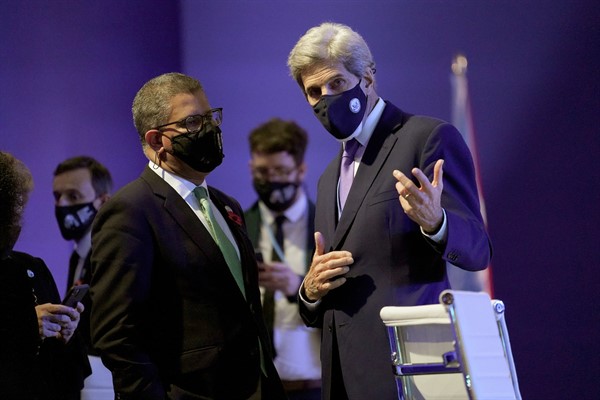As former U.S. President Barack Obama once mused, there are times in global diplomacy, as in baseball, when “hitting singles” is adequate. This month’s COP26 climate summit in Glasgow was not one of those moments. With the fate of the planet on the line, world leaders should have been swinging for the fences. Instead, they played small ball, chalking up only incremental gains rather than the historic breakthrough the occasion demanded.
Going into the Glasgow summit, the United Nations Environment Program had delivered some blunt news: The world’s emissions reduction pledges before COP26 accounted for only one-seventh of the reduction actually needed to limit the rise in average global temperatures to 1.5 degrees Celsius above preindustrial levels. In fact, emissions were on track to increase by the end of the decade, with global temperatures slated to rise a catastrophic 2.7 degrees Celsius. Given the high stakes, COP26 was, in the words of U.S. climate envoy John Kerry, “the last best hope for the world.”
Its outcome was disheartening. Some nations announced new commitments, but they often came with caveats and, being nonbinding, were easily discounted. China, which is responsible for 30 percent of greenhouse gas emissions, promised to stop funding coal-fired power plants abroad, but not at home, and Beijing declined to accelerate its deadline for achieving net-zero emissions, currently set at 2060. The U.S. and China did jointly promise to “enhance” their emissions reduction ambitions, but the main value of this vague commitment was to reassure anxious observers that geopolitical frictions will not derail bilateral climate cooperation.

